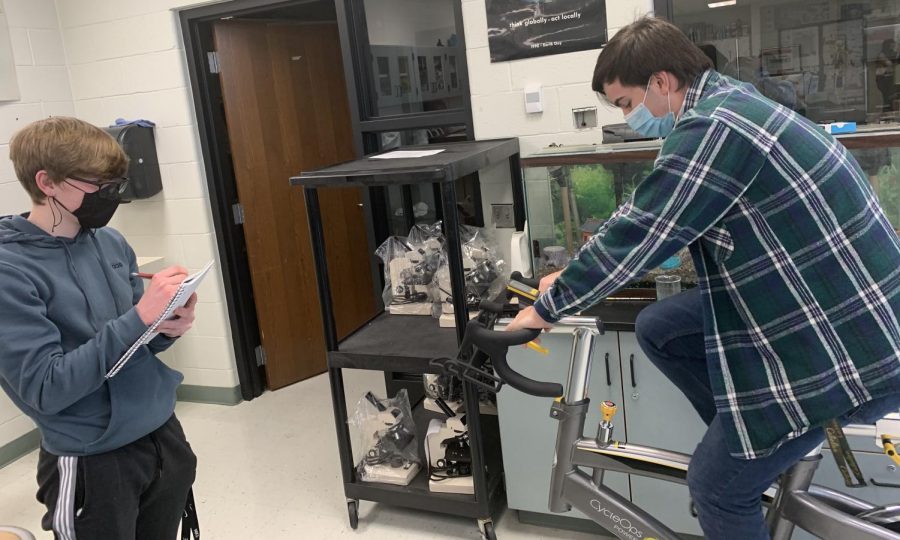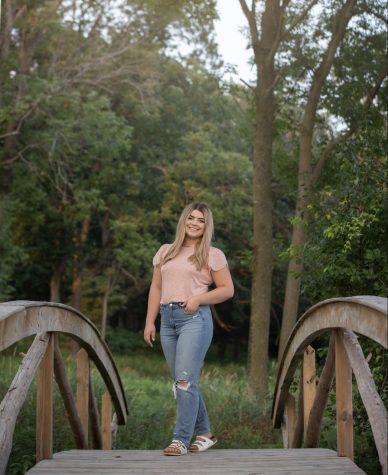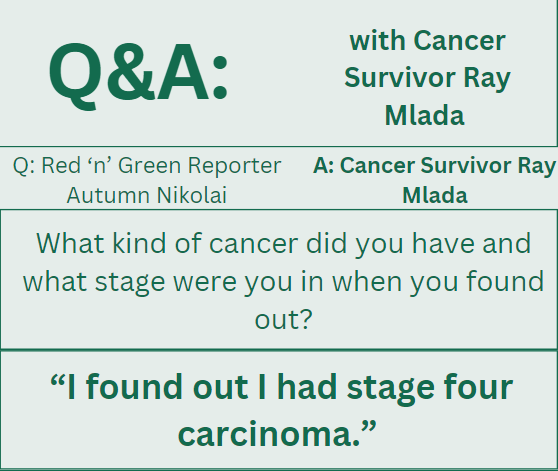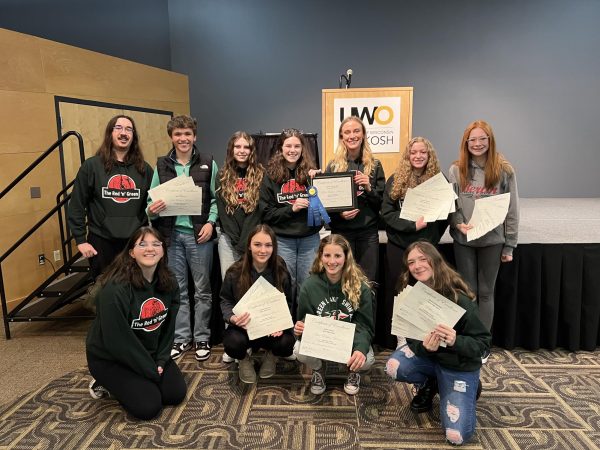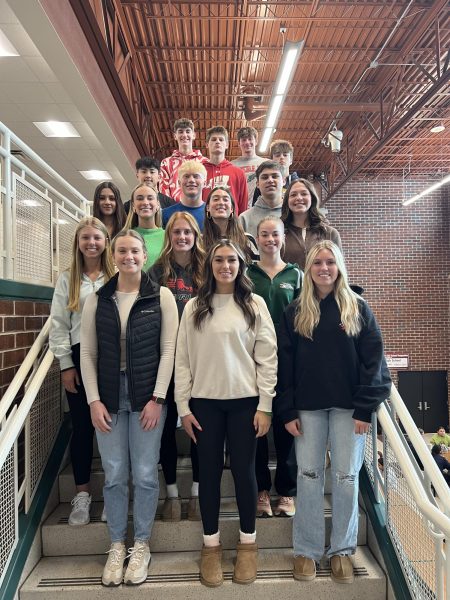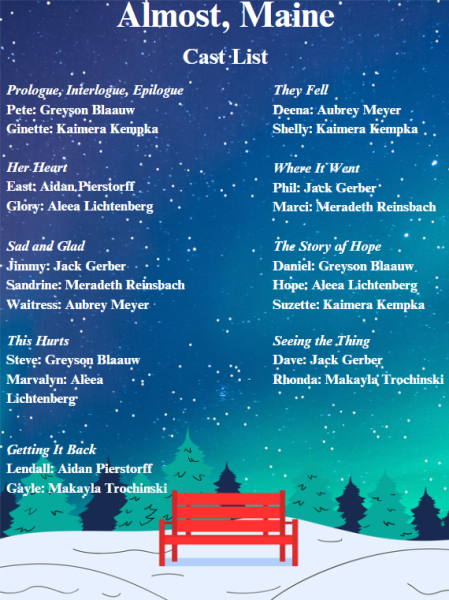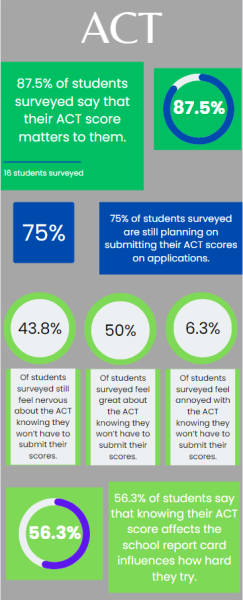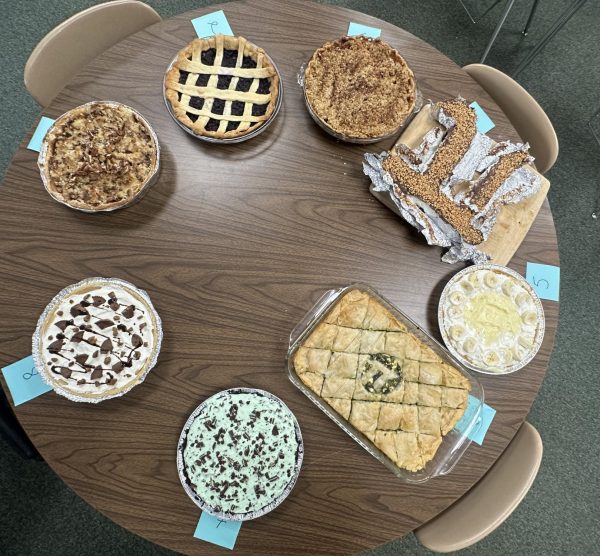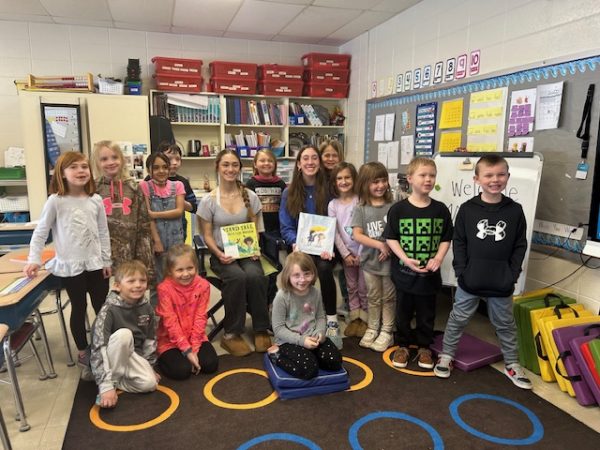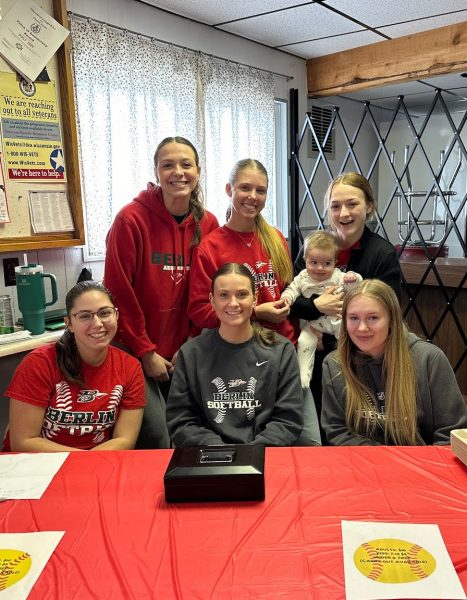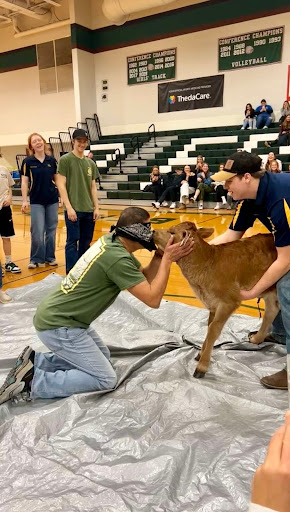Students conduct Advanced Biology experiments
On the left junior Jeremy Disterhaft takes notes while right, senior Sam Petraszak, rides a stationary bike to test a hypothesis. Petraszak was a test subject for Disterhaft’s Advanced Biology project. “I think they were trying to see if physical activity changes a person’s reflex time,” Petraszak said.
March 2, 2021
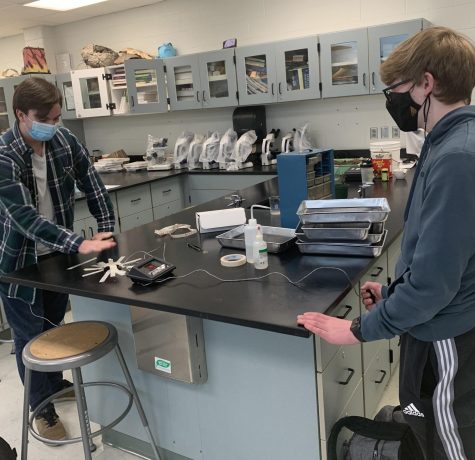
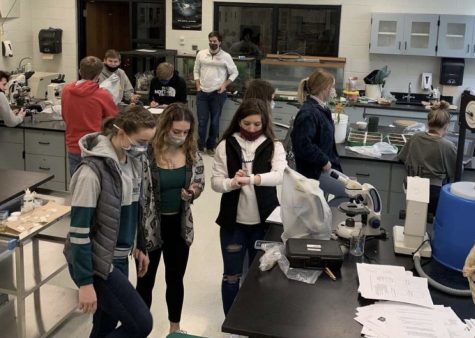
Students in Advanced Biology have been conducting experiments in science teacher Dave Reich’s classroom the past couple weeks. Every year the students conduct experiments that are worth 10 percent of their final grade.
Advanced Biology is an extension of regular sophomore biology because of the extra independent work it is an honors class. The class is offered to all juniors and seniors who passed biology and chemistry or could be taken the same time as chemistry, taught by Reich.
“Students have to design, run, interpret and write up a large research project. They submit a professional-style paper like a professional scientist submits to a science journal,” Reich said.
Junior Jeremy Disterhaft partnered with senior Landen Sobieski for their experiment. Their experiment was inspired by Reich’s ongoing interest in exercise physiology.
“We were trying to show the correlation between exercise, gender and reaction time,” Disterhaft said.
The students running the experiments have to test many other students to get an accurate representation of data. Disterhaft and Sobieski tested their experiment on several people including senior Sam Petraszak.
“For the first part we tested our reflexes by pressing a button when a little light came on,” Petraszak said. “After doing that about four times they would have the test takers get on the aerobic bike and pedal as fast as we could and after about 45 seconds we would have our reflexes tested again.”
The testing that Disterhaft and Sobieski did proved that exercise lowers the reaction time.
Seniors Jennifer Schroeder and Abby Werch took a different approach to their project. Instead of testing other students or people in the school, they did their experiment on plants.
“We wanted to do something with plants because we didn’t want to have to worry about people getting quarantined and it was easier to control,” Schroeder said.
Their experiment still had a connection with the human body. They studied the effects of vitamins and minerals on the human body and wanted to see if they had any impact on plant growth.
“Our experiment was trying to see if there was a benefit to adding certain vitamins and minerals into a plant’s water. We wanted to know if they would benefit the way that humans do, and if there was a way to improve plant growth,” Schroeder said.
After testing Schroder and Werch found that her experiment was inconclusive because all of their plants died.
During the experiment, students could have some data that does not fit their initial hypothesis or the experiment could go completely wrong.
“One of the important lessons to learn is that science doesn’t always work out the way you think, but that doesn’t mean it’s not good science,” Reich said. “Unexpected outcomes have led to some of the greatest discoveries in science.”
Schroeder said she enjoyed the project and thinks it is crucial for students going to college in the future.
“I think that it is very important to have a research project in Advanced Bio because if you are going to do any sort of science in your future, you will have to do the same steps. It is good to have experience before college, especially if you are going into research,” Schroeder said

